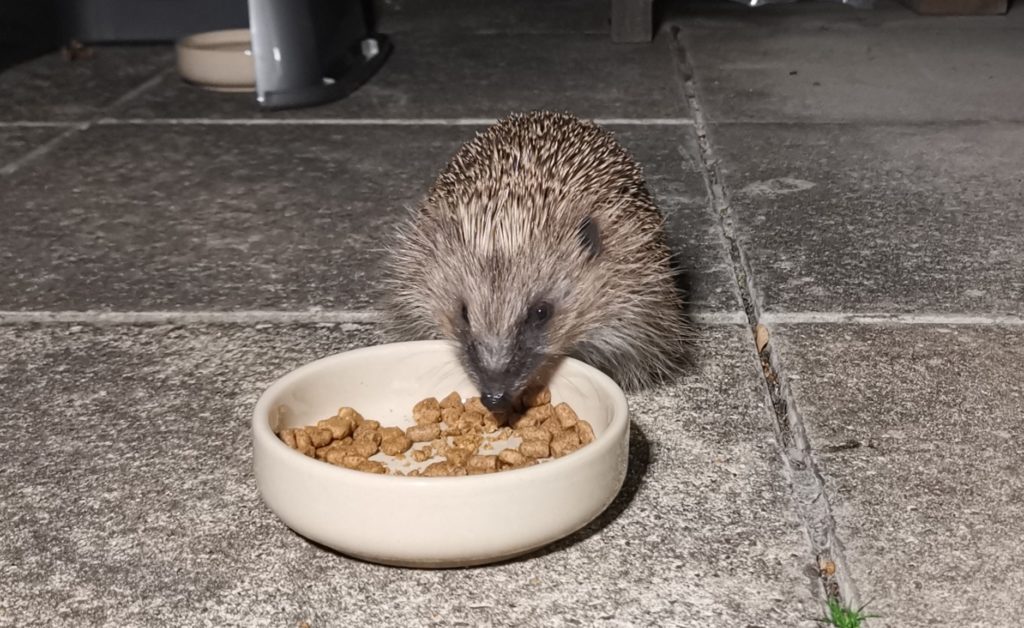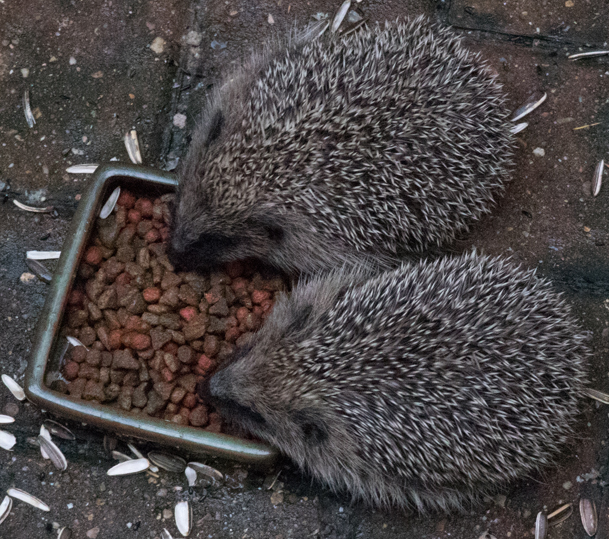Research: Do hungry hedgehogs hibernate later?
15th February 2021
Hedgehog hibernation is a complex process we’re still learning about. Contrary to common belief it’s not sleep, and animals need to be cold rather than hot (read more about hibernation here). We do however know that hedgehogs rouse periodically, and may switch nests. We also know that they need to eat plenty in the autumn to prepare for hibernation. This is to ensure they build the necessary fat reserves to survive the winter months with limited food.

In an effort to help hedgehogs, we recommend leaving out supplementary food. In the winter, this can help individuals who haven’t gained enough weight to hibernate. But is it having a negative effect on healthy individuals who should be hibernating? Abi Gazzard, who is completing her PhD at the University of Reading, decided to find out. She called for volunteers to put footprint tracking tunnels in their gardens for 20 weeks over winter. The tunnels were used to see how active hedgehogs were over winter and what impact supplementary feeding may have on them.
Results
- Hedgehog activity reduced substantially from January to March.
- Although there was reduced activity, volunteers noted that there were new footprints in the tunnels each week throughout winter. This shows there was some level of activity throughout the cold months.
- There was much more activity in gardens where householders had been putting food out.

What does this mean?
Abi says that these results are not clear. Does putting out food encourage hedgehogs to remain active for longer? Or does it help them put on enough weight to be better prepared? Environmental cues appear to trigger hibernation, with larger hedgehogs going into hibernation first. Abi’s findings suggest that putting out food could be increasing activity during the winter when hedgehogs should be hibernating. On the other hand, it could enable young of the year, especially from late litters, to put on enough fat to successfully survive the winter.
The next step will be to find out if winter activity is spread across hedgehogs of all ages, or mostly just young hogs. In the meantime, please don’t stop putting food out for hedgehogs; we know that feeding them the right food throughout the year helps these vulnerable animals. And don’t forget shallow dishes of clean fresh water (just watch out in case they freeze!).

